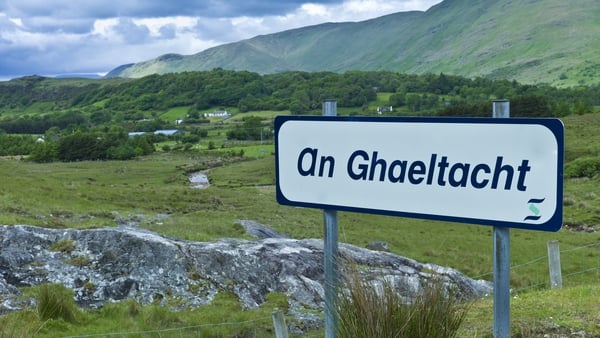Analysis: Ireland has seen a sharp rise in the number of new electric cars being registered, but we still have a long way to go
The number of electric-only vehicles registered for the first time soared in 2022, up 81% year-on-year according to the latest Central Statistics Office figures. Last year, 15,462 new electric cars were licensed compared to 8,554 in 2021, 3,940 in 2020, 1,222 in 2018 and 623 in 2017. At 101,349 there was a small decrease in the total number of new cars licensed overall in 2022, down from 101,853 in 2021.
A number of factors are influencing the sharp rise in electric vehicles in Ireland, says Dr John Hayes, lecturer in Electrical and Electronic Engineering at UCC and lead author of Energy Systems, Power Electronics and Drives for Hybrid, Electric and Fuel Cell Vehicles. Almost all car manufacturers in Europe, US and east Asia now have electric cars on sale and this means we've got price competition and a wide variety of cars to choose from, he says.
"Prices have been rising for all cars in 2022, but Tesla have just announced a price war for 2023 in order to increase sales. People who might have traditionally purchased German luxury brands, such as BMW, Mercedes or Audi, can now do so. SUVs and crossovers are big sellers and these are expensive cars."
We need your consent to load this rte-player contentWe use rte-player to manage extra content that can set cookies on your device and collect data about your activity. Please review their details and accept them to load the content.Manage Preferences
From RTÉ News, sales of electric cars increased by 81% in 2022
Electric cars now also have the benefit of being seen as "sexy and trendy". "Much of car buying is based on branding and imaging," says Hayes. "It’s now possible to drive a luxury brand and be seen as environmentally aware." Another aspect is the fact that EVs are "pleasant to drive, silent and fully automatic" and for those who like a fast and smooth acceleration, that’s easily done despite the relatively small electric motors and large and heavy batteries, he adds.
Government plans to expand charging infrastructure across the country will see €100m invested in a national EV charging network, with the strategy promising high-powered chargers every 60km on our motorways within the next three years, as well as home/apartment charging, residential neighbourhood charging (including new mobility hubs), destination charging (such as sports clubs, retail centres and tourism spots) and en-route charging.
We need your consent to load this Datawrapper contentWe use Datawrapper to manage extra content that can set cookies on your device and collect data about your activity. Please review their details and accept them to load the content.Manage Preferences
This may go some way in ending 'range anxiety’ for those who have yet to switch to an EV. Around 80% of EV charging is done at home and access to and installation of home charging infrastructure is relatively well established, according to the strategy release. The Climate Action Plan aims to have 30% of the private car fleet switched to electric and 100% of new car registrations be electric by 2030. In 2022, newly registered electric vehicles accounted for 15% of all new private cars, so we still have a long way to go.
Read more: Why electric SUVs are a bad idea
More than half of all EVs were bought in Dublin (43,4%) and Cork (9,9%) combined in 2022, followed by Kildare (5,7%), Meath (4,6%), Galway (4,2%) and Wicklow (4.2%). But the prevalence of EVs was highest in Dublin (4,6 EVs per 1000 people), followed by Wicklow (4,1), Kildare (3,5), Meath (3,2), and Waterford (2,6).
We need your consent to load this Datawrapper contentWe use Datawrapper to manage extra content that can set cookies on your device and collect data about your activity. Please review their details and accept them to load the content.Manage Preferences
Meanwhile nearly twice as many opted for hybrid vehicles, with 27,355 hybrid cars registered in total. Of these, 19,015 were electric and petrol hybrids, 7,447 were petrol or diesel plug-in hybrids, and 893 were diesel and electric hybrids. All in all, electric and hybrid cars together accounted for 42,2% of all new car sales in 2022, more than petrol (30,3%) or diesel cars (26,8%) individually, though they still dominate.
The number and share of new diesel cars continues to fall year by year, from a high of 73,3% (67,740 cars) in 2014 to 47% in 2019 (53,201 cars) and 26,8% in 2022. The number of petrol cars has remained relatively stable.
We need your consent to load this Datawrapper contentWe use Datawrapper to manage extra content that can set cookies on your device and collect data about your activity. Please review their details and accept them to load the content.Manage Preferences
"Many electric car owners are also installing photovoltaic panels to generate electricity, and so, get the benefit of generating their own fuel, which is pretty amazing," says Hayes. But, the significant grants and subsidies available to buyers are the really big factors [driving EV sales], he adds. "The government proved with the switch over to diesel, that the right subsidies will get people to change — for better or worse."
Read more: Are we seeing the end of 'range anxiety' about electric cars?
Of new electric cars licensed last year, the top make and model was Volkswagen ID.4, followed by Hyundai Ioniq and Tesla Model 3. Of the top 30 best-selling models in Ireland in 2022, five of them are fully electric: the Volkswagen ID.4 is the top selling EV at number five, followed by the Hyundai Ioniq 5 at number 25, the Tesla Model 3 at number 26, the Kia EV6 at 29 and the Volkswagen !D.3 at 30.
We need your consent to load this Datawrapper contentWe use Datawrapper to manage extra content that can set cookies on your device and collect data about your activity. Please review their details and accept them to load the content.Manage Preferences
EVs remain something that’s easier for those on high incomes to buy. "The average price of these electric vehicles is much higher that the average for all vehicles. This is not as much an issue at this time, as many of the electric car buyers are relatively wealthy and are buying premium vehicles costing €50,000, plus."
Read more: How to get the most out of your electric car battery
But it is a problem at entry level, because the price of entry level electric cars is still much higher than equivalent conventional cars, even with subsidies, says Hayes. Plus, electricity costs as much as diesel to drive a kilometre.
The views expressed here are those of the author and do not represent or reflect the views of RTÉ








